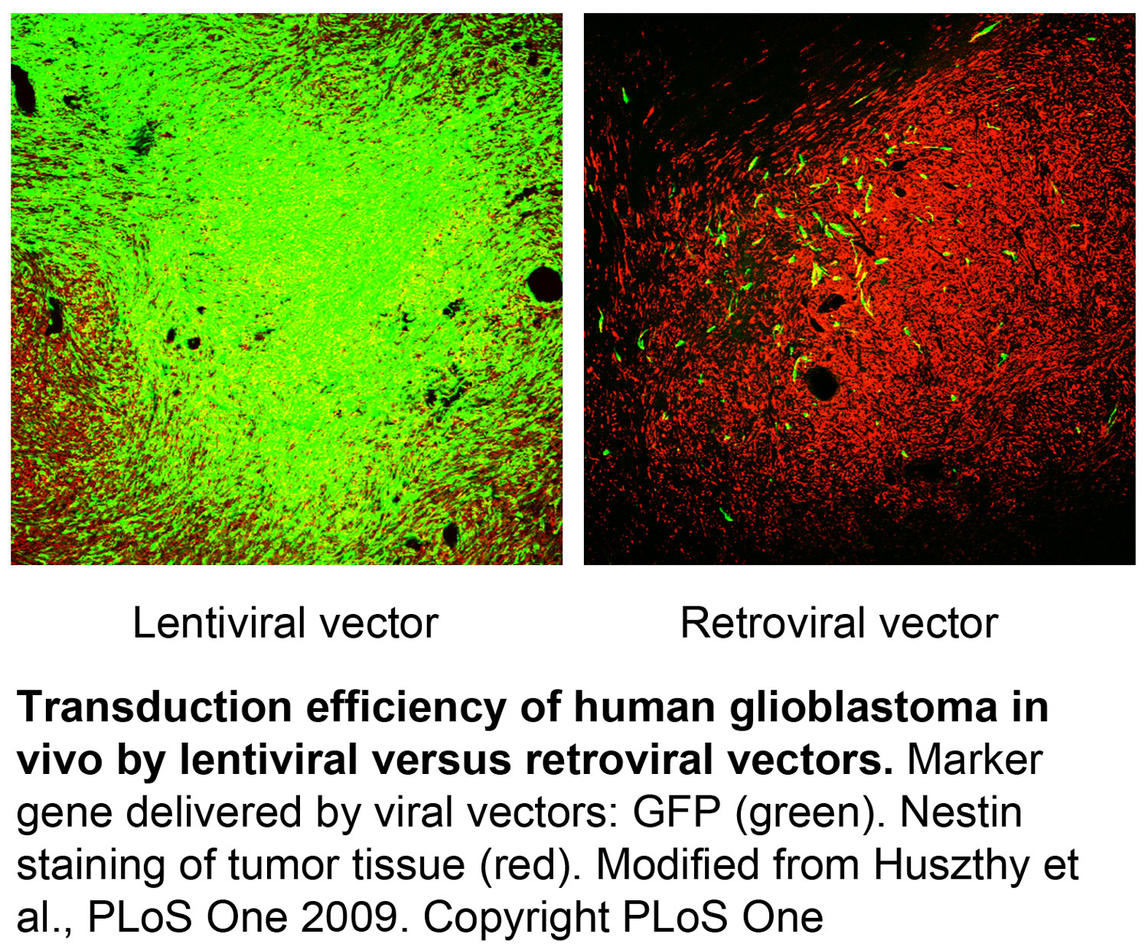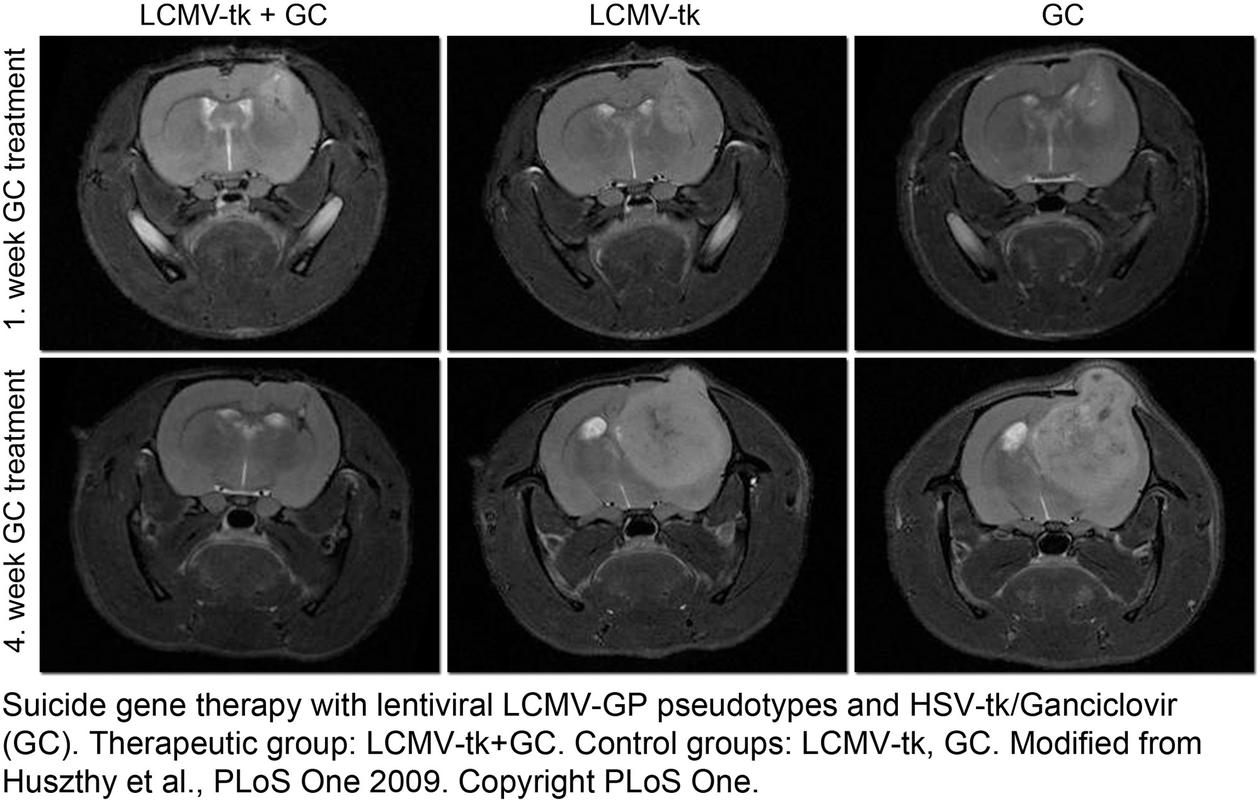Gene Therapy
Main content
The Miletic Research Group has developed a novel gene therapy for human glioblastoma. Based on lentiviral vectors, and in contrast with conventional cancer therapies such as cytostatic drugs, our efficient and specific gene transfer approach allows us to target the tumor alone. The lentiviral vectors, which are pseudotyped with glycoproteins (GP) of the lymphocytic choriomeningitis virus (LCMV), have a broad host range and we are able to achieve high titres for clinical application. Our group has shown that, by targeting both quiescent and dividing tumor cells, the lentiviral vectors deliver improved efficacy compared to most other gene therapy approaches that target only dividing tumor cells.
In contrast with retroviral vectors for example, which have been shown to be inefficient in clinical studies (Figure 1), we showed high transduction efficacy of lentiviral vectors using a clinically relevant animal model. While sparing neurons, lentiviral LCMV-GP pseudotypes efficiently and specifically transduce rat and human glioblastoma cells in vivo. High therapeutic efficacy with complete remission of treated tumors on MRI was demonstrated using a suicide gene therapy approach based on the thymidine kinase of the Herpes simplex virus (Figure 2).
The Miletic Research Group aims to translate the gene therapy strategy into clinical application to treat patients with financial support of the K.G. Jebsen foundation.

